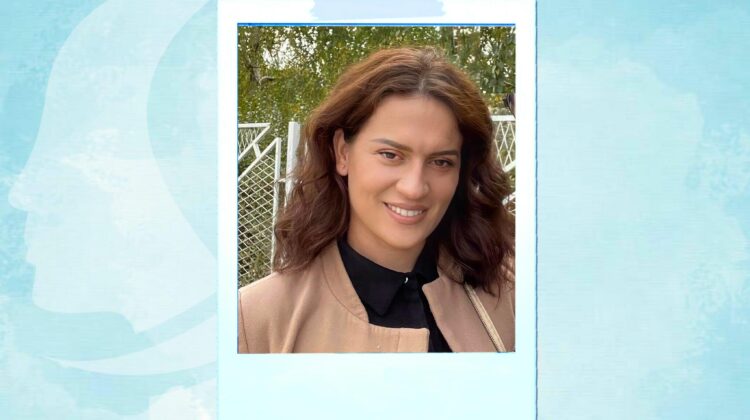Different currencies, but the same spirit: youth who believes that peace is possible

by Urall Boshnjaku
Journalist
A well-educated, modern-minded young generation continues to grow up in the Balkans, ruled by divisive politics for decades. Yes, this youth is aiming to turn everything that separated them until today into a turning point that will sow feelings of rapprochement. Mitrovica, a small town on this peninsula, physically separated by a river and a bridge, is trying to give the best example of a spirit of cooperation between generations that do not want to remember the war and do not want social, geographical separation (physical), emotional and human. This generation, of which I am also a part, has given its own test, proving that the youthful spirit is trying to clarify the relationships that have been truncated between decades. My journalist colleagues from the north and I already have dozens of trainings that we attended together, considering joint projects that would serve our community in terms of online information.
The aforementioned finding is also illustrated by the donation of a sum of money by a Serbian youth about 20 years old in the cash box located at the payment point of an Albanian-owned market in the ‘Bosnian Quarter’ in Mitrovica north. The box, which was placed there to collect money for the family of a needy Albanian in the south, is full of two currencies, euros and dinars. Although with different languages and currencies, young people from the south and those from the north, extending a helping hand to each other, are proving that despite all the attempts to influence and manipulate, their spirit is the same and does not even accept political colors, neither ethnic, nor racial nor religious, since at the end of the day they all sleep under the same sky of a city with the same needs and name but with different geographical suffixes.
Even though there are malicious tendencies for the division to deepen and cooperation not to be thematized, the human interaction from both sides is making it impossible for the proponents of divisions to do something like that. Even in the most difficult days for security, the young Albanians who were performing their service as policemen of the Republic of Kosovo in the north of Kosovo did not hesitate and even had a real desire to take care of the Serbian residents of Banjska in Zveçan/Zvečan, being also provided food packages on days when traffic in the area was restricted for security reasons. But human instinct knows no limits; he was there, in the midst of two communities reaching out to help each other.
Although Mitrovica, including other municipalities in the north of Kosovo, are going through a period of security and political turbulence, big steps towards inter-ethnic cooperation have been taken mainly by young people who deal with social activism, culture, music and journalism. Both sides of this city with a rich culture for decades that has served as an example for all of Kosovo have always shown a high level of education and awareness, which is always at the service of creating bridges of cooperation and lasting peace between communities here. The young people of Mitrovica, however, are managing to turn new pages of cooperation in a book full of stories of conflicts. They want to show that they don’t hesitate at all to make rock music together, just like the old generations of this city full of culture used to do, bringing together everyone who understands that peace is the only way forward.
At the end of the day, there is no difference between the way Milan`s[1] grandfather in North Mitrovica preps the land to help the family’s economy and the way Albert’s grandfather in South Mitrovica worked it over the years. In fact, there is no difference between the free movement that the Kosovo passport currently offers and that offered by the passports that Serbia issues for its citizens living in the north and south of Kosovo. Both passports currently have the same validity as far as the Schengen area is concerned. So, Anja, who works as a journalist in the north, must be provided with a visa to meet her colleagues in Croatia, just like Majlinda, who works as a journalist in the south of the city, unlike their colleagues from Serbia who have for many years obtained procedural facilitations and visas liberalization and free movement in the Schengen area. However, Anja also has a Kosovo passport, so from January, she and Majlinda can travel freely to Croatia, regardless of whether the salary they receive in euros or dinars is deposited in their bank account.
Even though the young people of the city physically separated from Ibri river have a lot of work ahead of them, the young people of this city have proven to be indomitable workers with great determination towards the destruction of the bridges of separation and towards the creation of bridges of connection. For young people to be able to strengthen their goals towards a common path, they need moral, financial and political empowerment and support, which should originate from the desire that the right of every citizen of the Republic of Kosovo has the same weight and to be respected both in the south and in the north. The youth deserve better, they are working for better and for this we must all contribute!
[1] The apostrophized characters in this opinion are fictional, but based on real events in Mitrovica.
“The development and publication of this op-ed article has been supported by Kosovar Civil Society Foundation (KCSF) program ‘EJA Kosovo’, co-financed by the Swiss Agency for Development and Cooperation (SDC) and Sweden. The content of this op-ed article is the sole responsibility of the REC – Reconciliation Empowering Communities and does not necessarily reflect the views of the KCSF, SDC or Sweden”







